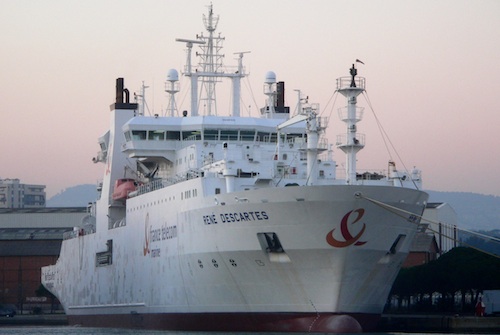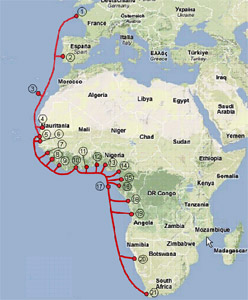
Yet another undersea cable system is coming to connect SA and other African countries to the global Internet, bringing the promise of an international bandwidth glut and lower broadband prices for consumers and businesses.
France Telecom has announced the new project’s backers, mainly operators, have signed an agreement for the construction of the US$700m (R5,4bn), 5,1Tbit/s, 17 000km-long system known as the Africa Coast to Europe (Ace) cable.
Alcatel-Lucent has been awarded the supply and maintenance contract for the system, with TE SubCom as a subcontractor.
Ace will be ready for service in the first half of 2012 and will connect 23 countries, either directly for coastal countries or indirectly through terrestrial links for the landlocked countries Mali and Niger.

According to France Telecom, Ace will be the first international submarine cable to land in the Democratic Republic of Congo, Equatorial Guinea, The Gambia, Guinea, Liberia, Mauritania, Namibia, Sao Tome and Principe and Sierra Leone.
The cable will also have landing stations in Angola, Benin, Cameroon, Côte d’Ivoire, France, Gabon, Ghana, Nigeria, Portugal, Senegal, SA and Spain.
The system will come on-stream less than a year after the anticipated 2011 completion of the West African Cable System (Wacs), which enjoys the backing of most of SA’s big telecommunications operators, including MTN, Vodacom and Telkom.
Like Wacs, Ace will have an ultimate design capacity of 5,1Tbit/s — up from an earlier plan to build a 2Tbit/s system. To put that in perspective, the largest cable currently serving the western side of Africa has a capacity of just 340Gbit/s, or 15 times smaller than the planned Ace and Wacs cables.
The construction of Ace and Wacs comes on top of two new cable systems along Africa’s east coast: Seacom, which is already live, and the East African Submarine System (Eassy), which should come on-stream in about three months.
France Telecom and its subsidiary Orange, which operate networks in French-speaking Africa, are the main backers of the Ace cable. They’ve ponied up about $250m for the project. — Staff reporter, TechCentral
- Subscribe to our free daily newsletter
- Follow us on Twitter or on Facebook




